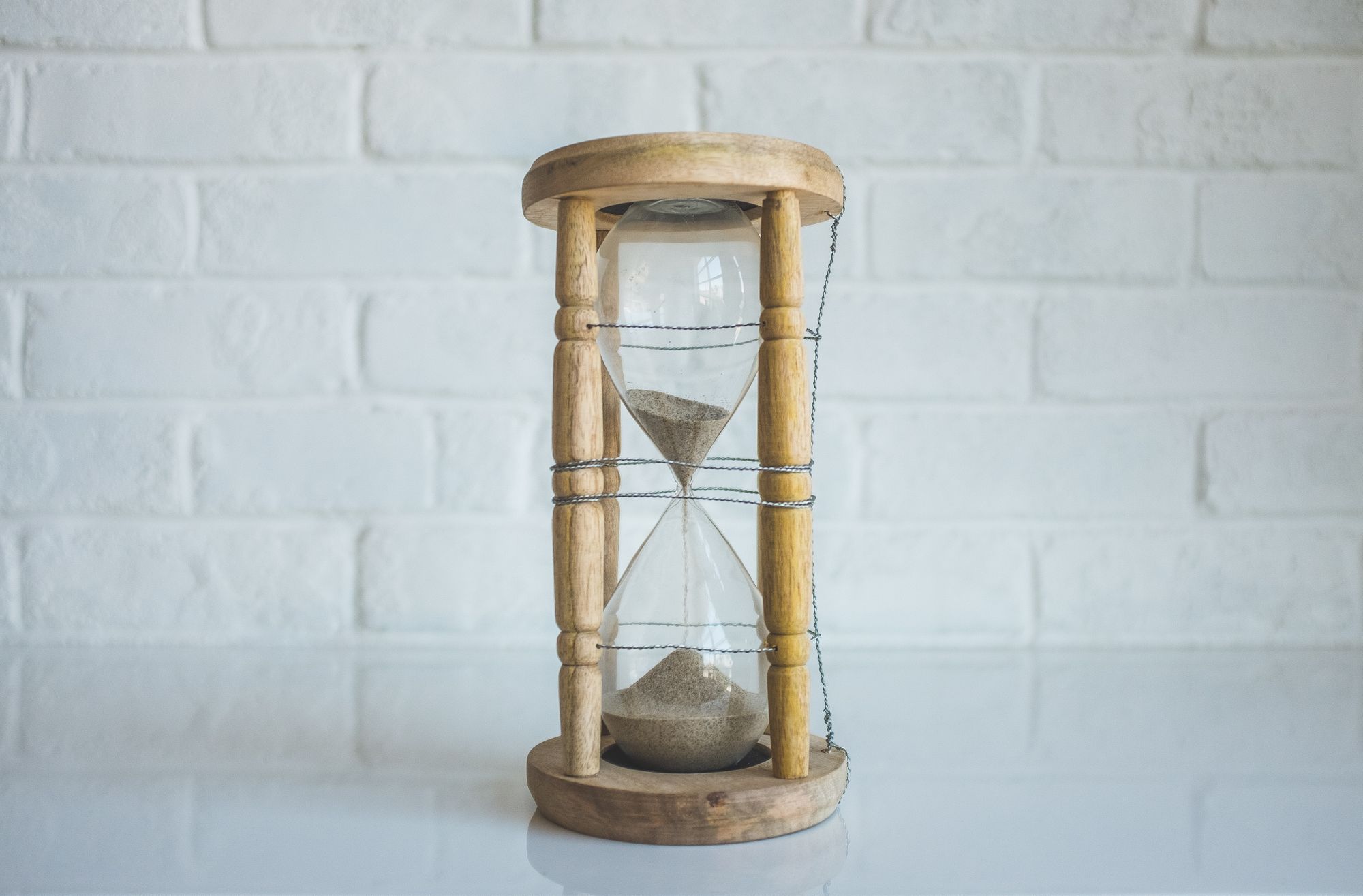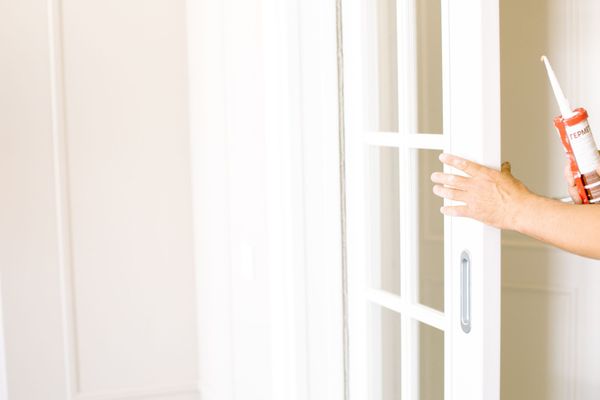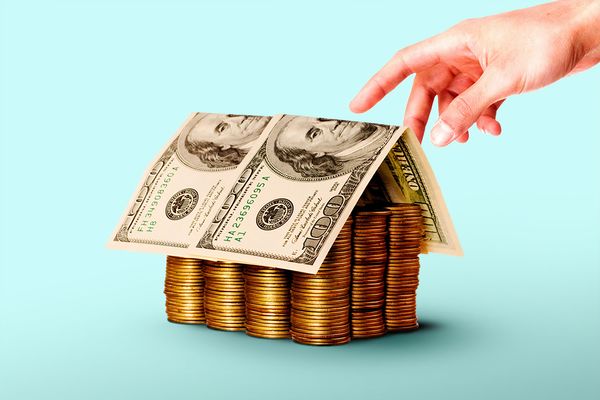The simple answer to this question is that you could immediately sell your house after closing if you really wanted to. As long as the sale is official and the house is legally yours, nothing is stopping you from selling it right away.
That said, this wouldn’t be a very smart financial move for the vast majority of people.
Instead, you should be thinking about how soon you can sell your house after you purchase it without losing money.
How Long Do You Have to Wait to Sell Your House Without Losing Money?
Usually, if you sell your home before you’ve owned it for a year, you would have been better off simply renting.
After all, even if you’re able to sell it for the exact price you paid, there are other costs associated with buying a house like the price of paying for movers. Then there are HOA fees and other costs you may have incurred since becoming a homeowner.
The Breakeven Point
Therefore, unless you absolutely need to sell your home right now, it’s best to wait until you hit the breakeven point. This is when you could expect to sell your home and recoup all the money you spent on purchasing it to begin with.
So, first, you need to make back your down payment and closing costs.
Then, you have to recover the monthly mortgage payments you’ve already made. The same goes for property taxes and the added cost of mortgage insurance you’ve been covering every month.
That’s pretty simple so far, but you also have to look at how much equity you’ve accrued and/or how much of your mortgage’s balance that you’ve paid down. For most homeowners, it would take at least two years before they’d reach a breakeven point with equity and payments and could therefore sell without losing money.
The biggest factor you have to consider is how much you can realistically hope to price your house at. Even if it’s only been a year since you closed on your home, demand in your area may have dropped enough that you can’t expect to ask for the same amount.
This is why, ideally, you should have another comparative market analysis or home valuation done before deciding if it’s a good idea to sell your house.
Finally, there are the costs associated with selling your house. This time around, you’re the seller, which means your overhead will be different than when you were buying.
When Does It Make Sense to Sell Your House ASAP?
Now, there are situations when you could sell your house without owning it for a number of years and without risking a major loss:
- You made renovations to your home in a short period of time that significantly increased its value (similar to when someone flips a house)
- Your neighborhood saw a sudden increase in demand because of new development or the job market has improved dramatically
- You were able to get a really good deal on your home (e.g. you bought a house via short sale) and are now able to sell it for what it’s really worth
Obviously, most people can’t plan for these kinds of circumstances, but if you notice demand in your area is growing or your house’s value increases because of renovations, there’s no reason to wait to list your home.
Potential Losses if You Sell Your House Too Soon After You Purchase It
With all of that being said, some homeowners learn the hard way that there are some surprising losses you could suffer even if the value of your home has otherwise increased.
Before you list your house, be sure you’ve considered these three potential losses.
Capital Gains Taxes
One of the best arguments for waiting at least two years before selling your house is to avoid capital gains taxes. Otherwise, individuals will have to pay taxes on the first $250,000 they make from the sale of their homes. Couples are taxed on the first $500,000.
For most people, their capital gains taxes would be 15% on the sale of their home. That could be a lot of money assuming you’re able to turn a profit on your house.
However, as long as you’ve lived in your home for at least two years and it’s your primary residence, you’ll be exempt from having to pay them if you decide to sell.
There are some other exceptions to capital gains taxes, as well (e.g. if you have to move because of a natural disaster, unemployment, etc.). It’s always a good idea to consult a tax professional before selling if you’re concerned about capital gains taxes.
Mortgage Prepayment Penalty
You could also lose money if your lender charges a prepayment penalty for selling your home before a certain amount of time has passed.
Although fairly rare (FHA loans never have them), some lenders include these clauses in their mortgages because a premature sale means they’ll be missing out on interest payments they would have otherwise received for years to come.
Usually, you’ll be charged 2-5% of the remaining balance on your loan.
Lowered Perception Among Potential Buyers
You also have to think about how it looks that you’re selling your house so soon after buying it. This is why it’s not always a good idea to sell even if your local market has seen an impressive increase in demand. Your home’s price may not go up all that much if buyers assume you’re selling because something is wrong with it.
This is why you shouldn’t risk trying to sell your own house if you haven’t owned it for long. While many experts would say that For Sale By Owner (FSBO) is never a good idea, this is especially true when you’ll need help marketing your home so buyers don’t worry about the quick turnaround time.
Understanding Tax Implications and Strategies to Maximize Profit
When contemplating the prospect of selling a house shortly after purchasing it, it is imperative to consider the tax implications, specifically regarding capital gains. If you sell your property within less than a year of ownership, any profit garnered will be treated as ordinary income, resulting in a higher tax rate compared to long-term capital gains. Thus, to avoid hefty capital gains taxes and maximize your net earnings, it is crucial to strategize effectively. One way to achieve this is by aiming to qualify for the term capital gains tax exemption, which applies under specific conditions such as job relocation. This exemption can significantly reduce the amount of taxes owed, allowing you to retain as much money from the sale as possible.
Moreover, understanding how much equity you have in your home is pivotal when considering a home sale. Equity is the difference between the current market value of your property and your outstanding monthly mortgage payment. To calculate this, deduct the remaining balance of your mortgage from the sales price you anticipate receiving. Keep in mind that the original purchase price and the amount you've paid towards the down payment play a vital role in this equation. Selling a house with substantial equity not only contributes to a higher profit margin but also aids in covering any potential costs associated with the sale, further emphasizing the need to wait until you've built enough equity to avoid capital gains tax and enhance your financial outcome.
Additionally, it is crucial to be aware of the potential long-term financial benefits of waiting to sell your property. By holding onto your investment for a more extended period, you allow for potential market appreciation, increasing the chances of selling at a higher price point. This strategy not only helps in avoiding short-term capital gains tax but also positions you to make a more lucrative deal, ensuring you receive as much money as possible from your home sale. In conclusion, while the allure of a quick sale might be tempting, being mindful of the tax implications, understanding your equity, and strategizing for long-term gains can lead to a more beneficial and financially sound decision.
Don't Sell Your House without an Experienced Real Estate Agent
Understanding the intricacies of the Florida real estate market can help homeowners make informed decisions when they're ready to sell a house. There are various factors to consider, such as paying capital gains taxes, accounting for selling costs, and evaluating reasons homeowners sell sooner.
It's essential to assess how soon you can sell without paying mortgage prepayment penalties or creating a negative buyer perception. Be mindful of the purchase price, as well as the current fair market value, to ensure you receive the best return on your investment.
Health emergencies or other unexpected life events might necessitate a quick sale, so it's crucial to determine your projected sale price and account for seller closing costs. Keep in mind that if you sell too soon, you may be facing capital gains taxes, which could impact your profit margin. Weigh your remaining loan balance against the selling price and consider factors such as monthly mortgage payments and fluctuating home values.
By staying informed about the Florida real estate market and being aware of factors like sales prices and capital gains tax, you can make the best decision for your financial future and potentially pay medical bills or other expenses without sacrificing your hard-earned equity.
Ultimately, how soon you can sell your house after you purchase it depends on a number of unique factors. That’s why you should speak to an experienced real estate agent before making a decision either way.
At SimpleShowing, we make it easy to connect with these types of agents. Even better, use our service, and you’ll only have a 1% listing fee — saving you thousands during your sale.
Contact us today to learn exactly how our simple system works.






